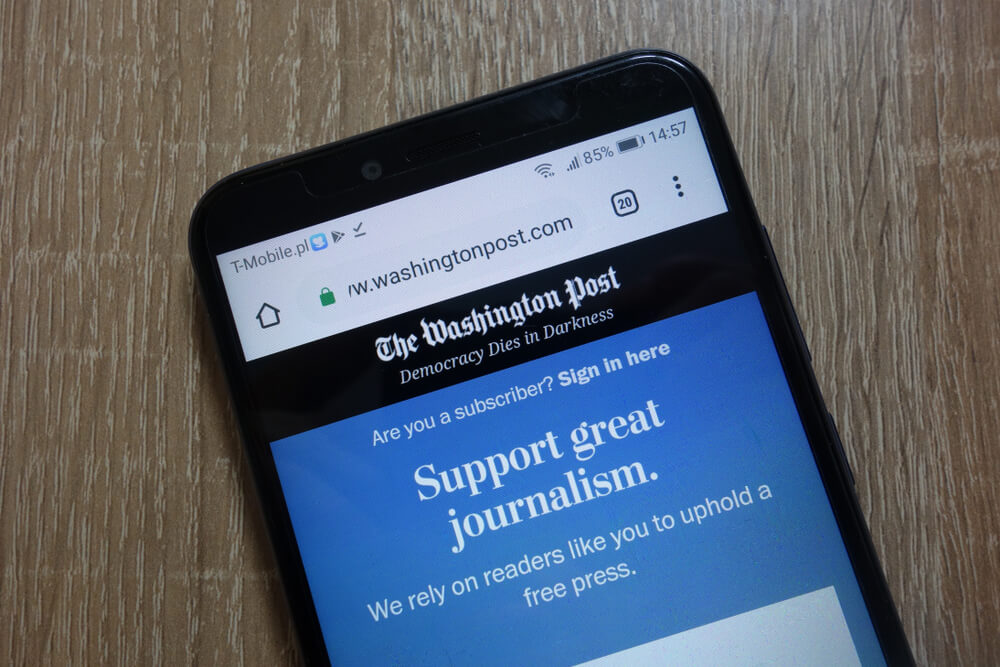Trying to predict the future of the internet or even to see how it will become a reliable source of fact, like old-fashioned newspaper and television reporting, is to my mind the equivalent of standing on the sand spit at Kitty Hawk, North Carolina, and predicting the future of aviation.
As the effect of the internet evolved, publishers of yore wished it away. I was one of those. Although I did tell the Newsletter Publishers Association way back that putting a print story down a wire wasn’t enough, that they should develop products for this new medium.
A few were up early and caught the worm while newsletter publishers like me slept in — notably The Wall Street Journal, The New York Times and The Economist. They embraced and adjusted their offerings for the internet.
They are all publications that traditionally have had a preponderance of readers interested in issues beyond local coverage. The Wall Street Journal has always had a business audience and adapted quickly.
The New York Times was able to leverage its global and national followers and convert them to reading online. The Economist had an obvious business and world affairs audience to tap into.
The Washington Post’s internet adoption was more dynamic.
When the Graham family sold The Post to the then-richest man in the world, Jeff Bezos, many of us believed he would be another rich man buying a newspaper to keep it going and to reap the social opportunities that go with the franchise. But Bezos saw the future and poured money into the Post, not to keep it alive but to expand it hugely in the cyberworld. He was right and has pulled off a publishing coup.
What wasn’t seen by anyone I knew in the publishing world and isn’t in the literature is no one understood how the internet would suck up nearly all the advertising dollars.
The pure internet companies, peripherally in publishing, have vacuumed up the advertising, creating great wealth for their owners.
While they haven’t had a background in publishing, and haven’t even thought of themselves as publishers, they have added news — often generated by legitimate news organizations — as a giveaway, which they haven’t paid for; if you write for a newspaper or a magazine, you have been ripped off by an internet publisher.
The irony is that back in the 1980s and ’90s, newspaper and television properties were highly valued and selling for multiples never dreamed of. It was the time when Al Neuharth was building the Gannett chain and launching USA Today. I knew Neuharth, himself a newspaperman through and through.
Now that empire has been sold and many of its once-proud local titles are closed or look more like pamphlets than newspapers. The advertising, and with it the revenue, has gone to the internet behemoths.
But they aren’t newspapers, and their owners aren’t publishers. They are aggregators, and thanks to the wonder of the internet, they have a global presence and penetration beyond the wildest dreams of Rupert Murdoch, Conrad Black and the Sulzberger dynasty.
I salute those publications that are taking the fight to the internet by creating daily online editions and keeping the craft-of-old alive.
These include The New Yorker and The Spectator, an English magazine trying to get an American presence.
On a recent visit to Edinburgh, my wife and I ducked into a newsagent, the traditional British shop that sells newspapers, magazines and sundries, to buy some newspapers. Hanging above the shop’s entrance was a large blue sign advertising The Scotsman. The owner told my wife that he didn’t sell newspapers anymore, and nobody needed to read them.
If you know there is a war going on in Ukraine, it is because the traditional media has told you so, because brave reporters are there on the spot, not online. Repeat this line for Iran, China, Mexico to say nothing of Washington, Toronto, London, Rome, Moscow and Beijing.
We need the old media, often called the mainstream media. We earned that moniker. The Hill, Axios and Politico show where journalism might be headed nationally. But who will cover the statehouse, the school board and the courts? In the dark, all those institutions stray.
In a courthouse in Prince William County, Virginia, I asked about press coverage. The woman showing me around sighed and said, “We used to have reporters, they even had their own table, but not anymore.” Lady Justice had closed one eye.

 Follow
Follow
Leave a Reply